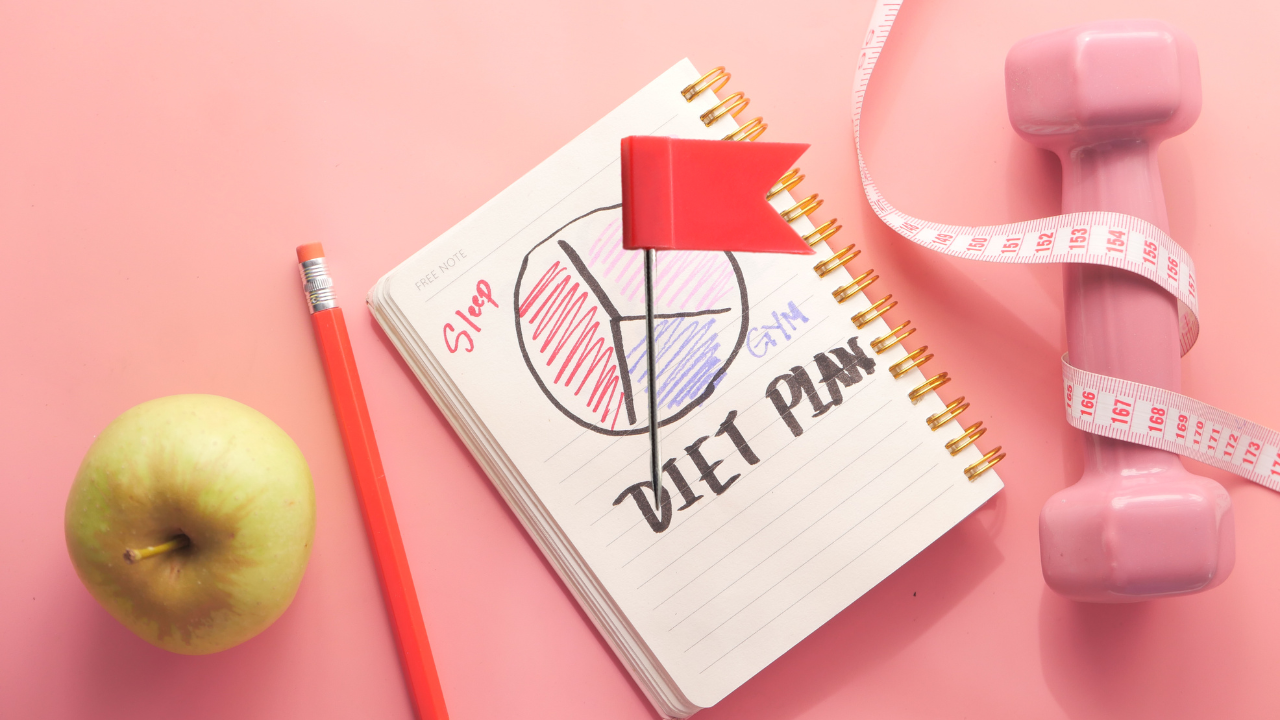Dieting red flags: why do we experience these harmful symptoms?

Obsessive food thoughts, secret eating, increased anxiety and feeling emotionally drained are just some of the symptoms we can get from dieting.
They are also a sign that your healthy eating plan is anything but healthy for your body. If you have to resort to dieting or food rules that harm your mental and emotional health, your body is not getting what it needs to feel its best. Let’s explore the dieting red flags we often minimise but are actually a sign you are harming your health and explore what you can do instead.
Watch instead or scroll to keep reading
Red flag symptoms of dieting
1. Obsessive food thoughts
Constantly thinking about and craving foods are signs you are chronically hungry. We often think of stereotypical symptoms such as your tummy grumbling for hunger, but your body has many ways of guiding you to get enough food. One of which is increasing your thoughts towards food, often at the cost of concentration and headspace for other areas of life.
2. Secret eating
Do you find yourself craving the comfort of foods but feel ashamed if other people know you are eating them? If food has taken on a sense of morality for you or coming with a side of guilt or shame, this is not a healthy place to be. No matter what you eat or how you feel after, guilt or shame does not serve you well.
3. Body checking or comparison
Have you become more aware of your body, placing value and worth on your physical appearance or comparing your body shape to others? All bodies are unique in their size and shape and it is completely normal for bodies to change day by day or over your life depending on your circumstances. Body checking and comparison create increased value and worth on your physical appearance which has nothing to do with your worth and draws you further away from your true values.
4. Gut discomfort
There’s two broad ways dieting can cause gut discomfort such as bloating. First, many diets increase the amounts of fibre and food molecules for our gut microbiota. While both are beneficial for our gut health, too much can create excessive activity in the gut and cause digestive upset.
The second is through the fascinating gut-brain connection. Dieting is physically and emotionally stressful for your body. Stress can lead to more sensitive communication between the gut and the brain, meaning you can feel sensations in the gut more strongly than you otherwise would.
5. Irritable mood
Ever feel you're not your true self when you have been dieting? This can be a result of a lack of basic nutritional needs such as the energy your brain needs to function best. It can lead to increased attention on obtaining food and less tolerance to stress or interest in other activities. Other causes may be an increase in food anxiety and pressure to eat right triggering difficult emotion. In some cases, especially with the rise in low carbohydrate diets, it can also be due to not having sufficient nutritional resources to make enough of the hormone serotonin (aka the happy hormone).
6. Difficulty sleeping
If you are lying awake thinking about food at night, this is a sure sign you are not eating enough in the day. Or perhaps you are placing too much moral value on food leading to guilt and shame keeping you up. Not getting enough sleep can affect you during the day in many ways, including further impacting on your hunger and satiety hormones and can cause cravings for fast energy foods when your brain feels sleepy.
How to start feeling good around food
When you experience these red flag symptoms it can create further distrust with your body and a false sense of needing rules to guide you. The more rules you create, the stronger red flag symptoms will likely become and the further disconnect you can feel in your body. Here’s some steps to explore to reduce these red flag symptoms and start feeling good around food.
1. Focus on nourishing your body well
Nourishing your body means providing enough energy, not just vegetables. It also means eating foods that bring you satisfaction and joy. Instead of focusing on controlling what or how much you eat, switch the focus to including a range of foods that provide energy as well as nutrients plus comfort and fun. You need it all.
2. Eat when you are hungry
To eat when you are hungry, you first must get comfortable with how hunger shows up in your body. My clients often start out believing they have to feel extreme hunger before eating which leads to bingeing or eating foods which don’t really satisfy them in the long run. Eating at earlier signs of hunger will support your body to function best. And remember, you are not a machine, you're a whole person with much more needs than fuel, it is healthy to eat for emotional and social reasons as well when that feels good.
3. Respect your body’s emotional needs
Your emotional health is just as important as your physical health. In fact, the two are completely connected and influence each other. Just because we can’t physically “see” our mental health, we are learning more and more about the complex neural communication pathways that influence how we feel mentally and how this then creates a cycle with our physical health. Self compassion and kindness to yourself is so much better for your body than beating yourself up for what you ate or how you feel physically.
You can stop following stressful diet rules. Learn how my FREE E-BOOK "5 steps to get started with Intuitive Eating". Grab it here!
Author Bio:
Written by Emma Townsin, Registered Dietitian and Certified Intuitive Eating Counsellor
Emma is the founder of Food Life Freedom and the host of the Food & Life Freedom Podcast. For personalised support to stop stressing over health and heal your relationship with food and your body, learn how you can fast track your way food and life freedom.
Want 1-to 1 support?
Learn how you are supported to feel good around food.








